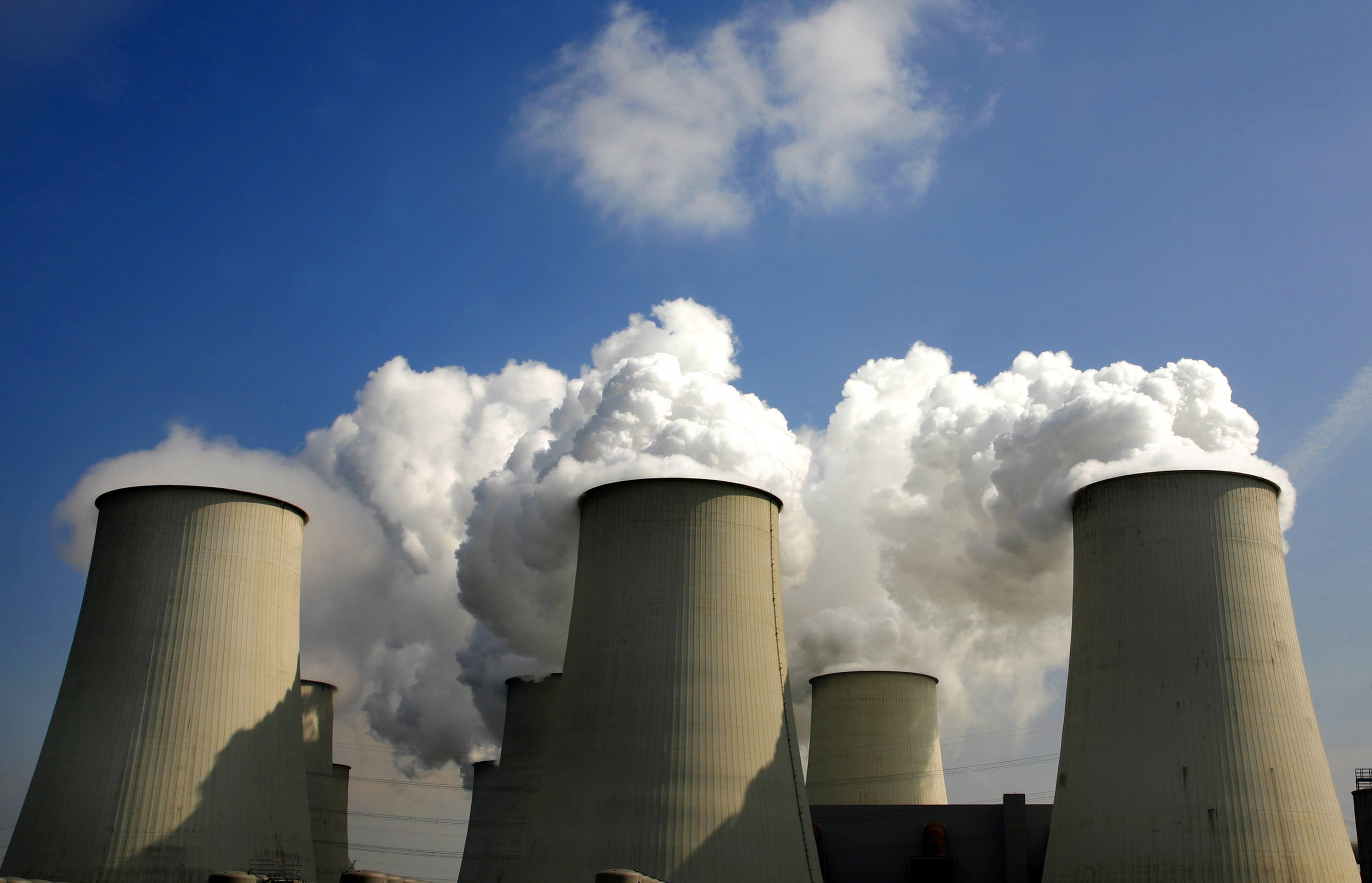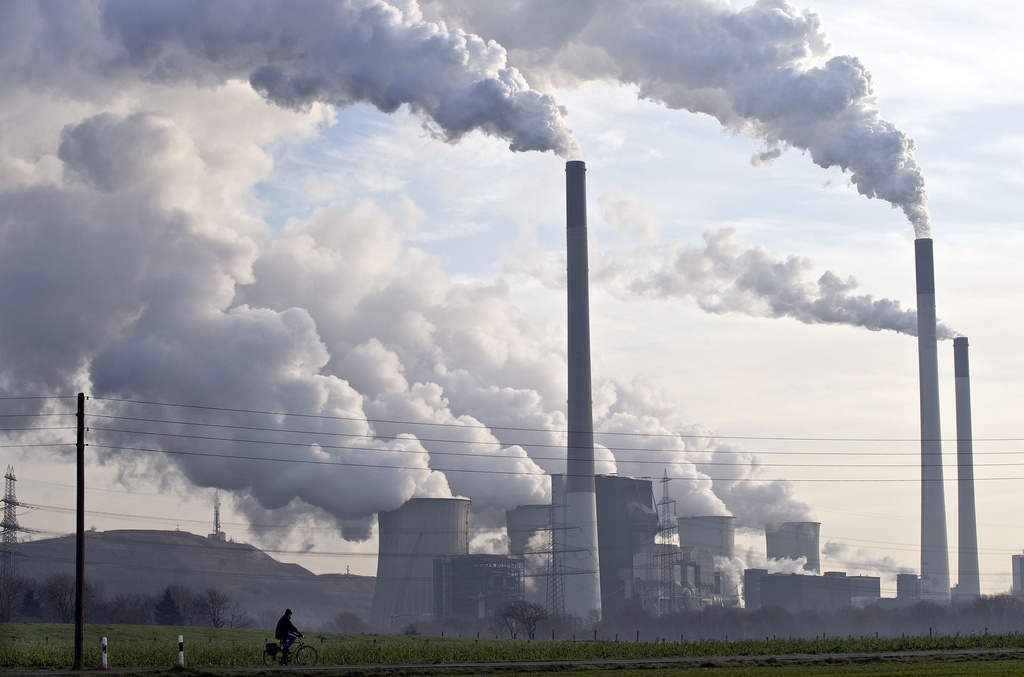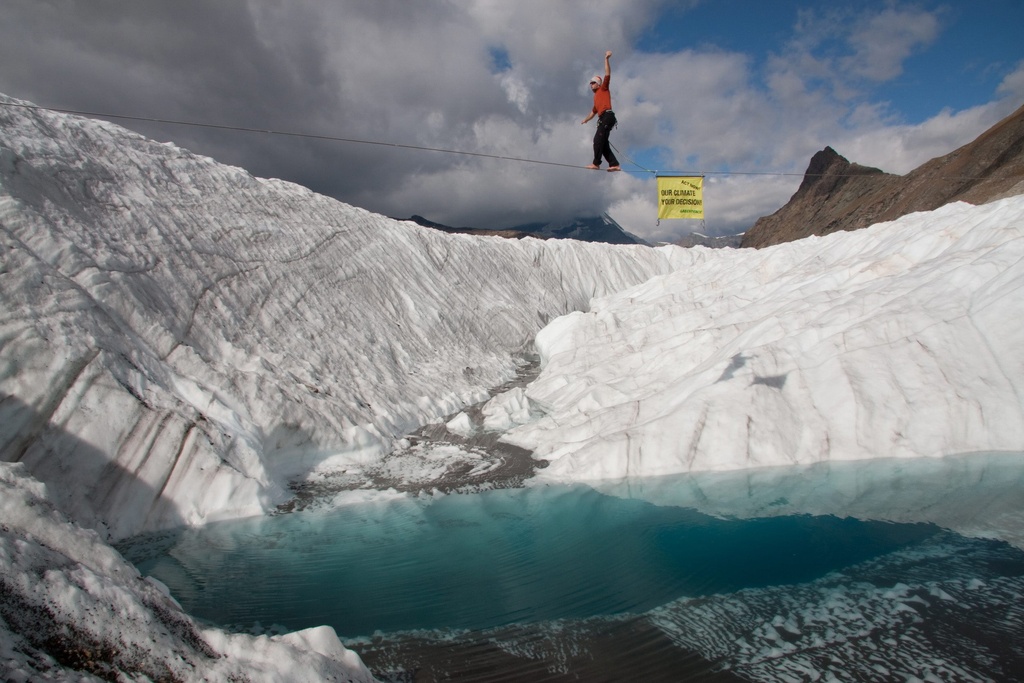“Significant progress” for climate talks, say Swiss

Switzerland says it is satisfied with the global climate deal finally agreed early on Sunday, which will for the first time force all big polluters to take action on emissions.
According to the resolution – negotiated over the past two weeks in Durban, South Africa – countries will no longer be split into industrialised and developing nations.
“Thanks to this paradigm change, it was possible to achieve significant progress at the international climate negotiations,” Swiss negotiator and Environment Office director Bruno Oberle said.
The package of accords extends the Kyoto Protocol, the only global pact that enforces carbon cuts. Newly agreed is the format of the Green Climate Fund to help poor countries tackle climate change and maps out a path to a legally binding agreement on emissions reductions.
Delegates in Durban agreed to start work next year on a new legally binding treaty to cut greenhouse gases to be decided by 2015 and to come into force by 2020.
The process for doing so, called the Durban Platform for Enhanced Action, would “develop a new protocol, another legal instrument or agreed outcome with legal force” that would be applicable under the United Nations climate convention.
That phrasing, agreed at a last-ditch huddle in the conference centre between the European Union, India, China and the United States, was used by all parties to claim victory.
Concessions
It also enabled Switzerland to leave Durban satisfied. “With the concessions agreed to by the newly industrialised countries and the US, the conditions stipulated by the EU, New Zealand, Australia and Switzerland for a new commitment period under the Kyoto Protocol were fulfilled,” the Swiss Environment Office said in a statement.
“It will now be possible to continue the Kyoto Protocol from 2013 without any gaps in its implementation.”
Oberle added that Switzerland – where French is a national language – was able to work together with a few French-speaking African states to forge an alliance between these poor nations and some of the world’s wealthiest.
The Swiss delegation said the Green Climate Fund will be used to support developing countries in the implementation of mitigation and adaptation measures.
The Swiss added that a new instrument for dealing with the challenges facing agriculture as a result of climate change was also created, and a process for the reduction of deforestation was also defined. Deforestation contributes to at least one fifth of global greenhouse gas emissions.
Small island states
But many small island states and developing nations at risk of being swamped by rising sea levels and extreme weather said the deal marked the lowest common denominator possible and lacked the ambition needed to ensure their survival.
UN climate chief Christiana Figueres acknowledged the final wording on the legal form of a future deal was ambiguous: “What that means has yet to be decided.”
A UN spokesman said the final texts might not all be publicly available for some days.
Environmentalists
Environmentalists said governments wasted valuable time by focusing on a handful of specific words in the negotiating text, and failed to raise emissions cuts to a level high enough to reduce global warming.
The agreement to hold a global mean temperature rise below at least 2° Celsius was welcomed by the Swiss branch of WWF.
“That is a concrete figure, which shows a certain willingness to tackle the challenges of climate change,” said the WWF’s Patrick Hofstetter in Durban.
But the WWF argues that the negotiations delivered too little and the results will likely come too late. Hofstetter called on the Swiss government to use the country’s new CO2 law to reduce emissions by 40 per cent compared to 1990 levels.
UN reports released in the last month warned delays on a global agreement to cut greenhouse gas emissions will make it harder to keep the average rise to within 2° Celsius over the next century.
But agreement on the package avoided a collapse of the talks – that had been due to end on Friday – and spared the blushes of host South Africa, whose stewardship of the two weeks of often fractious negotiations came under fire from rich and poor nations.
“We came here with plan A, and we have concluded this meeting with plan A to save one planet for the future of our children and our grandchildren to come,” said South African Foreign Minister Maite Nkoana-Mashabane, who chaired the talks.
“We have made history,” she said, bringing the hammer down on the Durban conference, the longest in two decades of UN climate negotiations.
New figures from the UN’s World Meteorological Organization on November 21 showed that the three biggest greenhouse gases not only reached record levels in 2010 but were increasing at an ever-faster rate, despite efforts by many countries to reduce emissions.
The WMO found that total carbon dioxide levels in 2010 hit 389 parts per million, up from 280 parts per million in 1750, before the start of the Industrial Revolution.
Levels increased 1.5 ppm per year in the 1990s and 2.0 per year in the first decade of this century, and are now rising at a rate of 2.3 per year. The top two other greenhouse gases – methane and nitrous oxide – also are soaring.
The WMO cited fossil fuel-burning, loss of forests that absorb CO2 and use of fertiliser as the main culprits.
On November 18, the UN Intergovernmental Panel on Climate Change issued a report into extreme weather linked to human-induced climate change. It said an increase in heat waves was almost certain (99-100%), while heavier rainfall, more floods, stronger cyclones, landslides and more intense droughts were likely (66-100%) across the globe this century as the Earth’s climate warms.
As a signatory to the Kyoto Protocol, Switzerland in 1997 committed itself to reducing greenhouse gas emissions.
In an initial phase CO2 emissions were to be reduced 10% over 1990 levels by 2010.
The government foresees raising the target to at least a 20% cut in emissions by 2020, partly through a CO2 tax, an emissions trading system and compensation measures outside Switzerland.
Parliament approved the 20% target, but wants cuts to be achieved through measures within Switzerland only.
Discussions are continuing on extending the CO2 tax from heating oil, gas and coal to also include petrol.
Environmental groups collected enough signatures for a nationwide vote on separate proposals for a 30% cut in emissions.
The EU, which does not include Switzerland, has also set 20% emission cut targets.

In compliance with the JTI standards
More: SWI swissinfo.ch certified by the Journalism Trust Initiative














You can find an overview of ongoing debates with our journalists here . Please join us!
If you want to start a conversation about a topic raised in this article or want to report factual errors, email us at english@swissinfo.ch.